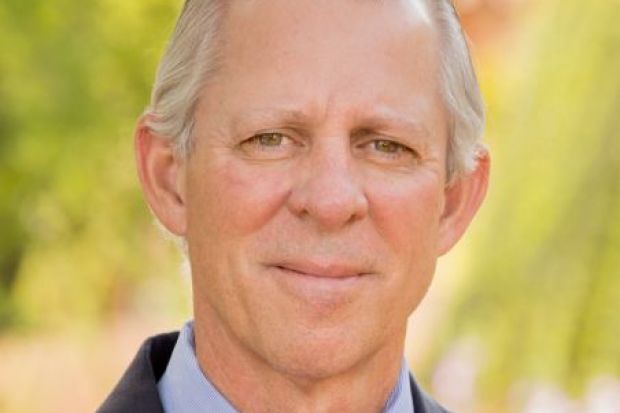Robert Robbins is stepping down as president of the University of Arizona, his seven-year tenure battered in recent months by a large surprise budgetary deficit and a persistent lack of faculty confidence.
“Although this is a difficult decision, it is the right decision for the university that I love so dearly and for me,” Dr Robbins, a cardiothoracic surgeon, said in announcing his departure.
Dr Robbins said he would leave the presidency by the end of his current contract in June 2026 but would be ready to go as soon as the university identifies a replacement.
The current crisis dates back to November, when university officials publicly revealed an unexpected budgetary shortfall that is now estimated at about $177 million (£141 million).
The university administration blamed the problem largely on faster-than-expected increases in spending in areas of sports and student financial aid, and described plans for an unspecified number of layoffs and a 10 per cent cut in the president’s annual base salary of about $816,000.
Dr Robbins announced his planned exit just ahead of a meeting this week of the university’s faculty senate, which was taking steps towards holding another vote of no confidence in the president.
The faculty senate approved a no-confidence vote against Dr Robbins and his management team a year ago, in protest against the fatal shooting on campus of a professor by a former student, which the professor’s colleagues saw as a reflection of inadequate on-site security. At that time, the state board of regents – the governing authority over Arizona’s public colleges and universities – stood behind Dr Robbins.
This time, the board accepted Dr Robbins’ departure, issuing a statement that focused on his achievements in areas that included increasing research funding and philanthropy, and deepening connections between the university and the state’s Indigenous and rural communities.
“President Robbins implemented a strategic plan focused on the opportunities and challenges presented by the Fourth Industrial Revolution,” said the chair of the regents, Cecilia Mata, the founder and president of a military services company.
The board last year extended his contract to 2026, and granted him and other system leaders 3 per cent pay rises.
Both the regents and Dr Robbins have faced criticism from Arizona’s governor, Katie Hobbs, a Democrat, whose complaints included both the surprise budget deficit and performance woes at the University of Arizona Global Campus – the former for-profit Ashford University that the university agreed to buy in 2020.
The university’s faculty senate welcomed the president’s decision to step down now, with its chair calling it “the first step in the University of Arizona’s turnaround process”.
“Over the last six weeks, it has become clear that the team that created our predicament was not going to get us out of it,” the faculty senate chair, Leila Hudson, an associate professor of Middle Eastern and North African studies, told Times Higher Education. “There are big challenges ahead, but our university is resilient and our community is strong and mobilised for change.”




